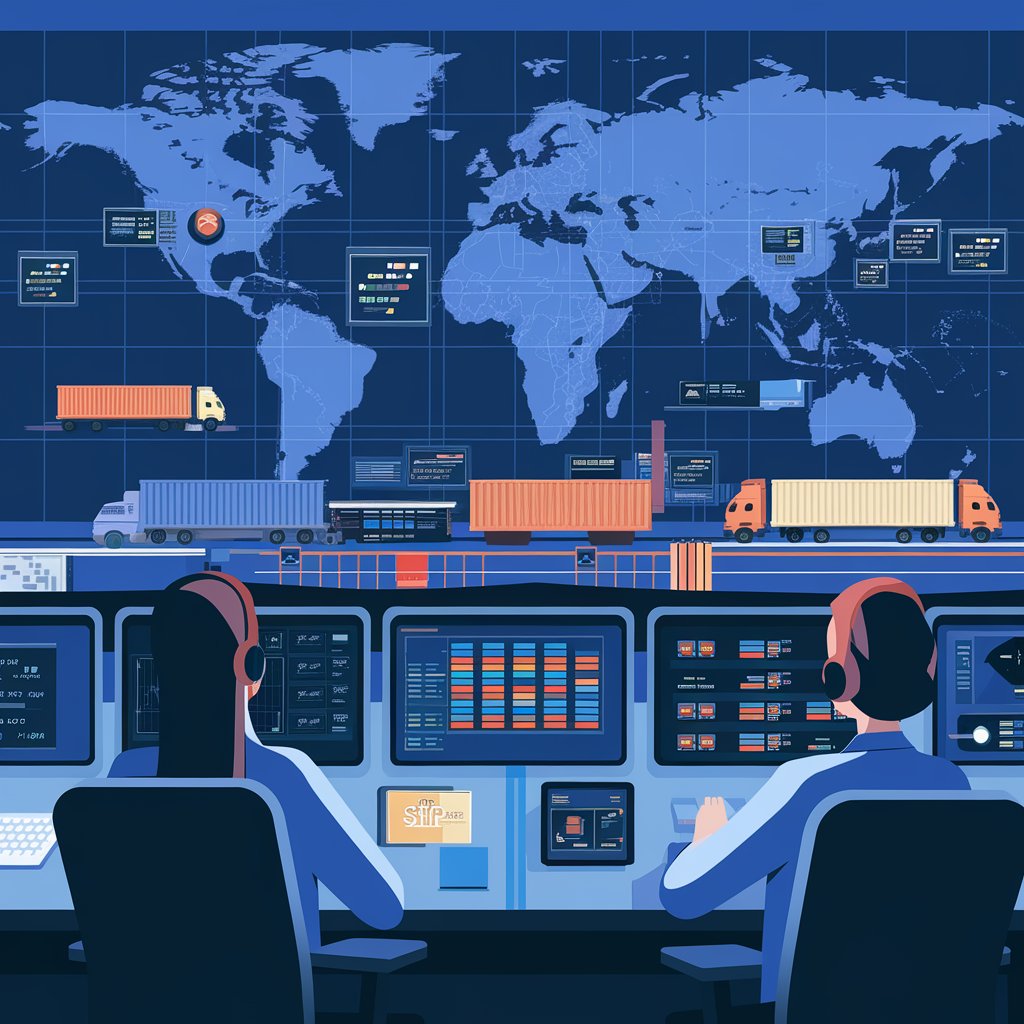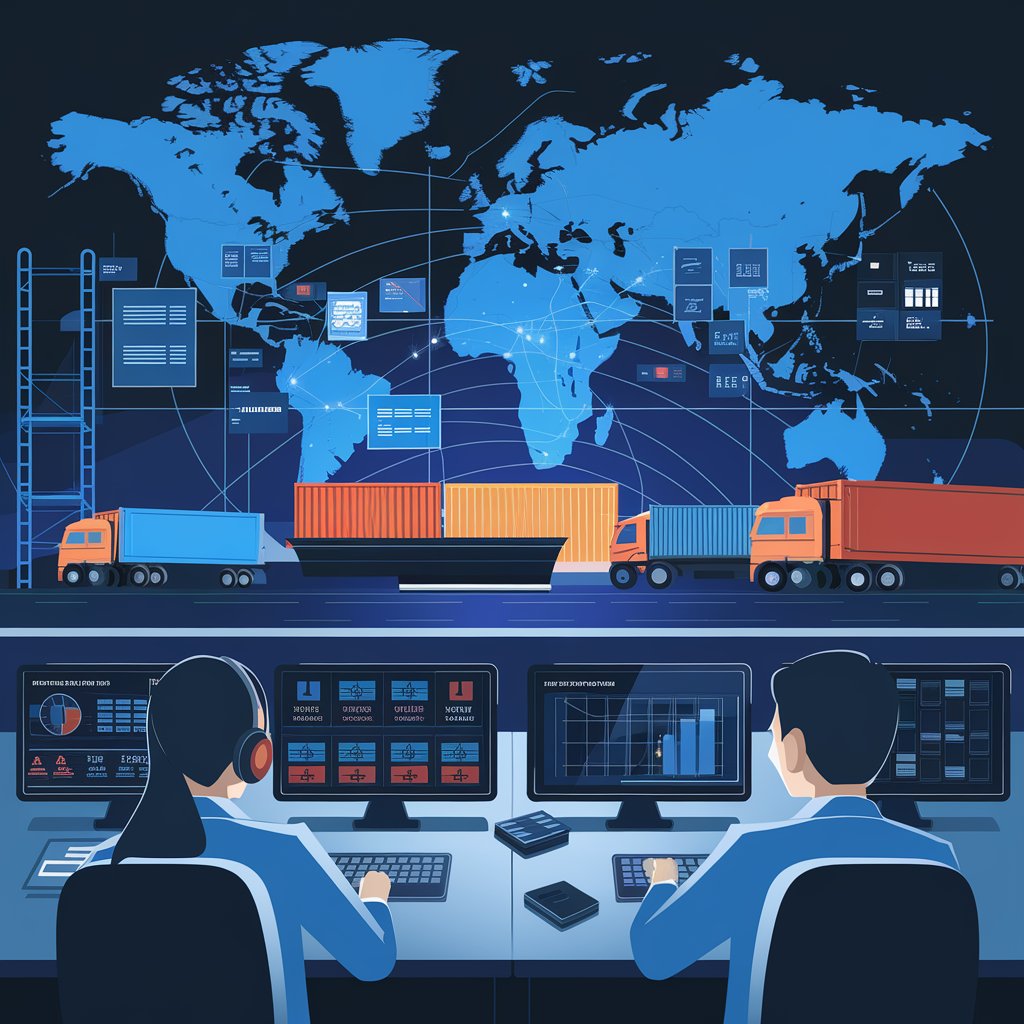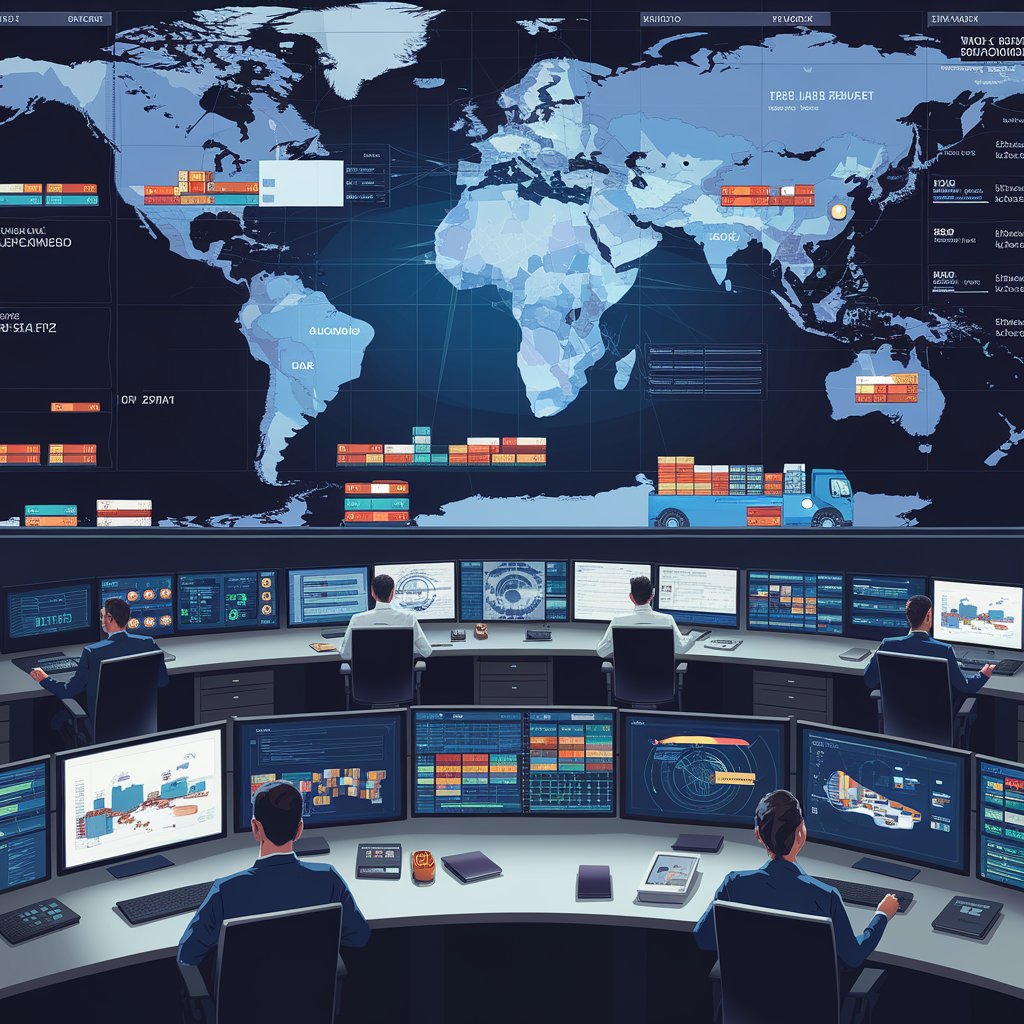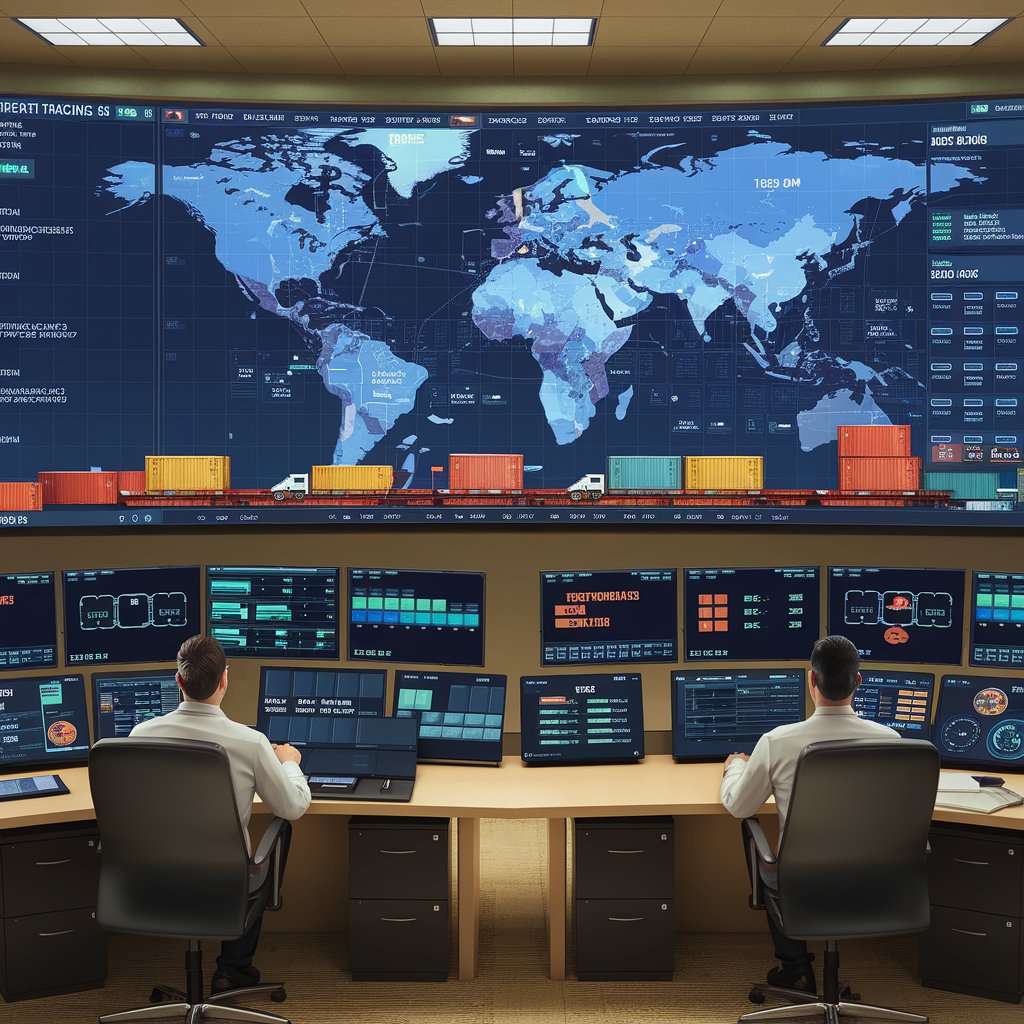Exploring the Benefits of Modern Container Tracking Systems: How They Revolutionize Logistics

What Are Container Tracking Systems?
Container tracking systems use technology to monitor the location, condition, and status of shipping containers as they move through the supply chain. These systems often rely on technologies like GPS, RFID, and IoT (Internet of Things) devices to track containers in real-time across multiple modes of transport, such as sea, rail, and truck.
Container tracking systems provide businesses with real-time data about their shipments, including the location, estimated time of arrival, and status updates on factors like customs clearance or potential delays. This level of visibility is critical for logistics companies seeking to optimize their operations and ensure that goods are delivered on time.

Key Benefits of Modern Container Tracking Systems
Modern container tracking systems offer a wide range of benefits that help businesses enhance their logistics operations, reduce costs, and provide better customer service. Here are some of the key advantages:
1. Improved Visibility and Real-Time Tracking
One of the most significant benefits of container tracking systems is enhanced visibility. With real-time tracking, logistics companies can monitor the exact location of their containers throughout their journey, whether on land, sea, or air. This level of visibility allows businesses to stay informed about where their goods are at any given moment, leading to better decision-making.
- How It Helps: Real-time tracking provides accurate location data, helping logistics teams stay on top of container movements and make informed decisions. It also allows businesses to provide customers with up-to-date information about their shipments, reducing uncertainty and increasing trust.
- Benefits:
- Immediate access to container location data.
- Better management of inventory and shipments.
- More reliable and accurate delivery estimates.
2. Increased Efficiency and Optimized Routes
Container tracking systems help logistics providers optimize their routes and minimize delays. By having access to real-time data, businesses can adjust their operations as needed to avoid congestion, traffic delays, or other disruptions. For example, GPS-enabled tracking can suggest alternative routes or real-time detours if unexpected delays occur, helping shipments stay on schedule.
- How It Helps: Container tracking systems use data on factors like weather conditions, traffic, and port congestion to suggest more efficient routes. This ensures that containers are transported in the most cost-effective and time-efficient manner possible.
- Benefits:
- Reduced shipping time and costs.
- Less reliance on manual interventions to solve logistics problems.
- Improved fuel efficiency and reduced environmental impact.
3. Enhanced Security and Theft Prevention
Shipping containers often carry high-value goods, making them attractive targets for theft or tampering. Container tracking systems increase the security of shipments by providing real-time monitoring and alerts when a container is diverted from its intended route or if unauthorized access occurs. In the case of theft, GPS tracking can also help recover stolen goods more quickly.
- How It Helps: By equipping containers with GPS and RFID tracking devices, logistics companies can monitor their containers’ movements and take immediate action if a container deviates from its planned route or enters unauthorized areas.
- Benefits:
- Increased protection for high-value shipments.
- Faster response times in case of theft or loss.
- Improved customer confidence due to enhanced security measures.
4. Proactive Problem Resolution
Delays and disruptions are common in the logistics industry, whether caused by weather conditions, port congestion, or customs issues. Modern container tracking systems allow businesses to identify potential problems before they escalate, giving them the opportunity to take corrective actions. For example, tracking systems can send alerts about delays or changes in the container’s schedule, allowing logistics teams to adjust their plans proactively.
- How It Helps: By receiving early warnings about potential issues, logistics companies can manage shipments more effectively and minimize the impact of delays on their customers.
- Benefits:
- Reduced risk of delays and bottlenecks.
- Faster problem resolution and less downtime.
- Improved customer satisfaction by providing proactive updates.
5. Streamlined Documentation and Compliance Management
In international shipping, there are numerous regulations and documentation requirements that must be met for smooth customs clearance and border crossings. Container tracking systems can help automate and streamline the documentation process by tracking the movement of containers and providing digital records of their journey. This reduces the risk of errors and ensures compliance with customs and regulatory authorities.
- How It Helps: By linking tracking systems with customs documentation tools, businesses can ensure that all necessary paperwork is in order, reducing the likelihood of shipment delays due to incomplete or incorrect documents.
- Benefits:
- Faster customs clearance and fewer delays.
- Reduced paperwork and administrative workload.
- Better management of compliance requirements.
6. Enhanced Customer Service and Transparency
With modern container tracking systems, businesses can provide their customers with real-time updates about their shipments, improving communication and enhancing customer service. Customers can track their orders on their own, leading to increased satisfaction and trust. Transparent tracking data also allows businesses to provide accurate delivery timeframes and resolve issues quickly if there are delays.
- How It Helps: Container tracking systems provide access to up-to-date shipment information that can be shared with customers. This empowers customers to track their goods independently and stay informed about delivery progress.
- Benefits:
- Increased customer satisfaction through transparent tracking.
- Better communication between logistics providers and customers.
- Reduced customer service inquiries and complaints.
7. Cost Savings and Operational Optimization
Container tracking systems help reduce operational costs by optimizing routes, improving inventory management, and minimizing delays. By providing better visibility and efficiency, these systems enable businesses to streamline their logistics operations, reduce fuel consumption, and cut unnecessary transportation costs.
- How It Helps: By tracking containers more efficiently, logistics companies can reduce wasted time, optimize warehouse management, and avoid penalties for late deliveries. The overall efficiency of the supply chain is improved, leading to significant cost savings.
- Benefits:
- Reduced transportation costs and fuel usage.
- Improved inventory management and warehouse operations.
- Greater overall cost savings in logistics operations.

Additional Benefits of Modern Container Tracking Systems
In addition to the above advantages, modern container tracking systems provide several other key benefits:
8. Enhanced Analytics and Reporting
Modern container tracking platforms often come with powerful analytics tools that help logistics providers gain deeper insights into their operations. These tools can identify trends, track performance metrics, and generate reports that assist in making informed business decisions.
- How It Helps: Container tracking systems can provide actionable insights into operational performance, allowing logistics teams to fine-tune their strategies, optimize supply chains, and improve efficiency.
- Benefits:
- Actionable insights to improve operations.
- Data-driven decision-making.
- Optimized supply chain strategies.

Environmental Impact Reduction
Tracking containers in real-time helps logistics companies reduce fuel consumption, minimize emissions, and optimize delivery routes. By reducing the need for detours or backtracking, GPS-enabled tracking systems can help minimize the carbon footprint of shipping operations.
- How It Helps: Real-time data ensures that containers are moving along the most fuel-efficient routes, reducing environmental impact and improving sustainability.
- Benefits:
- Lower fuel consumption.
- Reduced emissions.
- Greater sustainability in logistics operations.
Scalability and Future-Proofing
As businesses grow and their shipping needs become more complex, container tracking systems can scale to meet increased demands. These systems are designed to integrate with other logistics platforms and technologies, ensuring that businesses can easily adapt to new challenges and continue to optimize operations.
- How It Helps: Container tracking systems are flexible and scalable, allowing businesses to expand their operations without having to change systems or processes.
- Benefits:
- Scalability to handle increasing volumes of shipments.
- Integration with other logistics technologies.
- Future-proof solutions for evolving business needs.
Conclusion
Modern container tracking systems have become an integral part of the logistics industry, providing numerous benefits that help businesses improve efficiency, reduce costs, and enhance customer satisfaction. By offering real-time visibility, optimizing routes, increasing security, and streamlining compliance, container tracking systems enable logistics providers to manage shipments more effectively and offer better service to their customers.
Whether you’re an importer, exporter, or freight forwarder, implementing a modern container tracking system can provide a competitive edge, improving operational performance and helping you stay ahead in the rapidly evolving logistics industry. With enhanced transparency, security, and proactive issue resolution, container tracking systems are a key factor in the success of global supply chains.
